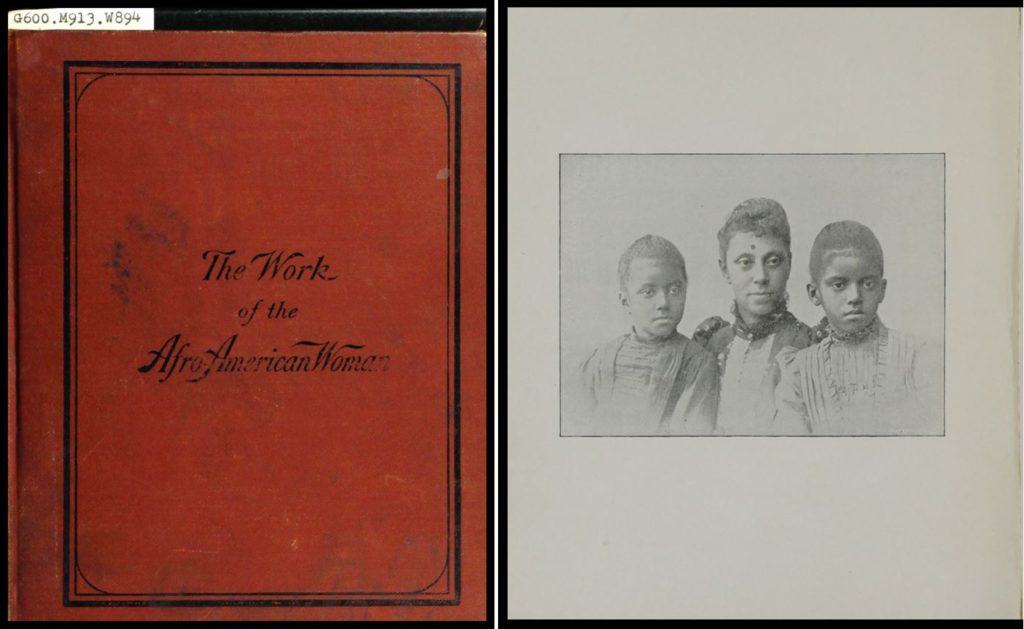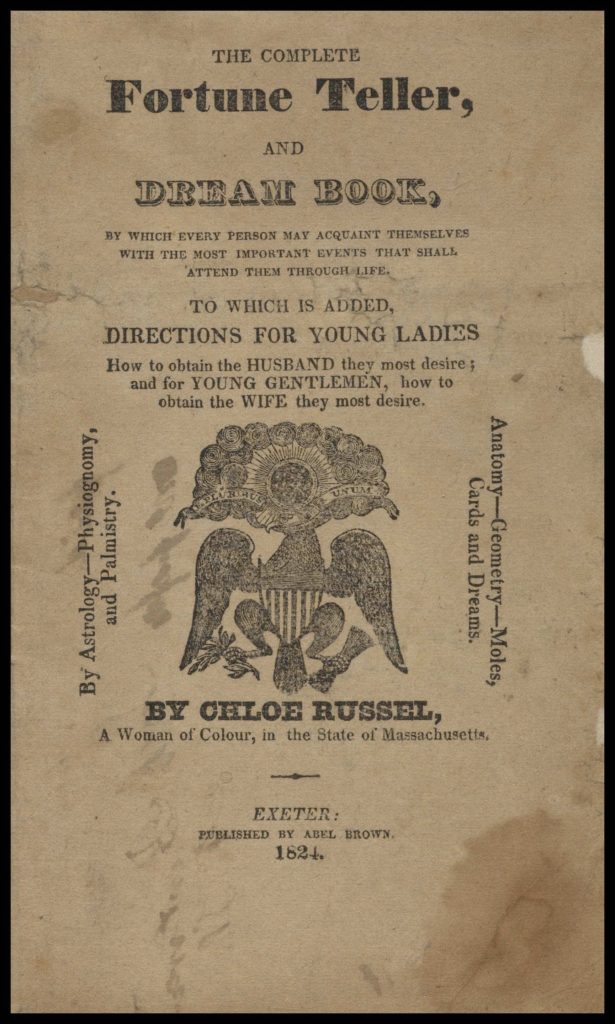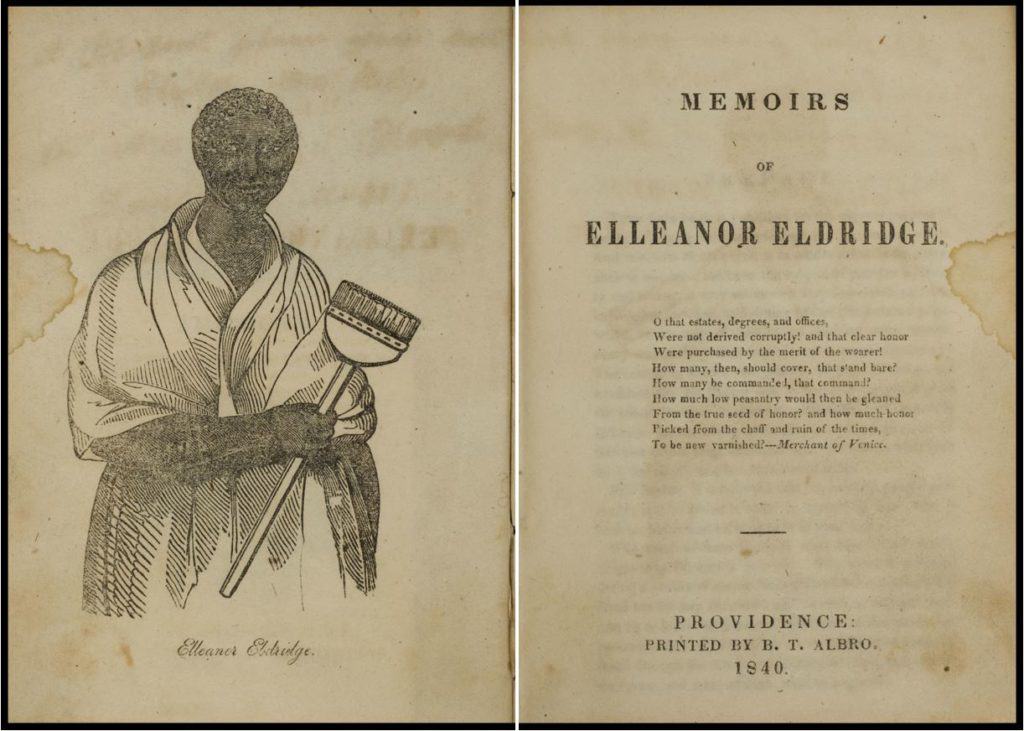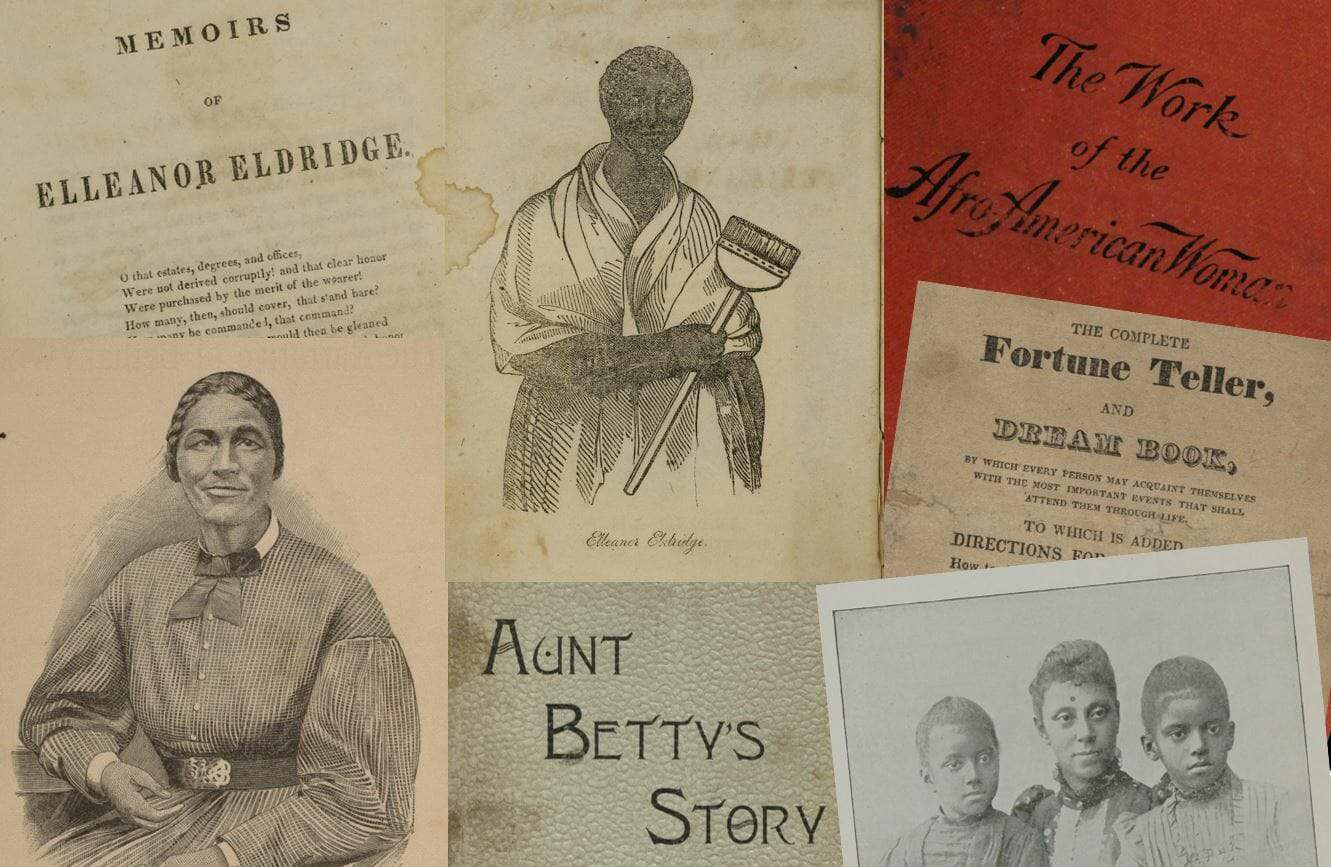|By Rachel Holt, Acquisitions Editor, Gale Primary Sources|
Alice Walker, Maya Angelou, Octavia E. Butler and Toni Morrison are just a handful of names of influential Black female novelists whose writing has arguably changed the modern world. Historically, however, women of colour were largely excluded from publishing due to poor literacy, lack of financial means, racism and prejudice. The odds were more often than not stacked against them. As a result, discovering such authors can be tough, so I would like to use the opportunity of Black History Month to showcase four wonderful examples of Black female authors who can be found in Gale’s Women’s Studies Archive: Rare Titles from the American Antiquarian Society, 1820-1922.
Bethany Veney
Bethany Veney (1813 – 1916) was born into slavery in Shenandoah County, Virginia and her autobiography, Aunt Betty’s Story: The Narrative of Bethany Veney, A Slave Woman (1889) details her life experience. Slave narratives are important because they provided the most powerful voices contradicting the slaveholders’ arguments for slavery. Furthermore, female slave narratives provide much-needed insight into the key themes of the slave experience from a female perspective.
![Veney, Bethany. The Narrative of Bethany Veney, A Slave Woman: With introduction by Rev. Bishop Mallalieu, and commendatory notices from Rev. V. A. Cooper, Superintendent of Home for Little Wanderers, Boston, Mass., and Rev. Erastus Spaulding, Millbury, Mass. [S.N.], 1889. Women's Studies Archive](https://review.gale.com/wp-content/uploads/2021/09/Bethany-Veney_combined-1024x747.jpg)
Gertrude Bustill Mossell
Gertrude Bustill Mossell (1855 – 1948) was an African American journalist who served as the women’s editor of the New York Age and of the Indianapolis World. She advocated the growth of black newspapers and encouraged more women to enter journalism. Her monograph The Work of the Afro-American Woman offers a fascinating insight into other Black women literary figures, from an African American woman’s viewpoint.

Chloe Russel
Occult literature had a revival in the 1800s and was often the remit of women writers. The study of occult texts can provide important insight for scholars and students of literary and cultural studies, religious studies, sociology, and gender studies. The Complete Fortune Teller, and Dream Book has an intriguing by line: “By Chloe Russel, a woman of colour”. Nothing else is known about the author herself but the fact that the publisher chose to mention her race raises interesting questions surrounding this text.

Elleanor Eldridge
Elleanor Eldridge (1784/1785 – 1845) was an African American/Native American entrepreneur and memoirist from Rhode Island known for the Memoirs of Elleanor Eldridge, co-authored with Frances Harriet Whipple Green McDougall. It was published for the purpose of enabling Eleanor to repurchase some property of which she had been unfairly deprived. This narrative details not only a Black, but a Native American’s experience of the legal system at a time when she was highly disadvantaged by both her race and her gender.

The above are just a handful of examples of what can be found within Gale’s Women’s Studies Archive, and I strongly urge you to find more! Admittedly the writing by women from religious and racial minority communities within the Women’s Studies Archive are still few in number compared to their white counterparts, but they are there. If you are interested in African American authors, you might also want to investigate Julia A. J. Foote, Annie L. Burton, Louisa Picquet, Amanda Smith, Phillis Wheatley, Frances Ellen Watkins Harper, Sojourner Truth, Christine Rutledge, Mattie J. Jackson, or Maud Cuney-Hare. Alternatively, if you’re interested in Native American authors you might want to look at the writings of Sarah Winnemucca, Mary Jane Ross, Harriet Maxwell Converse, Marie L. McLaughlin or Rachel Caroline Eaton.
One of the primary objectives of the Women’s Studies Archive is to bring to the forefront forgotten or overlooked narratives in patriarchal societies but if women’s writing has been historically side-lined, then the output of female authors from minority groups even more so. In 2021 the Women’s Studies Archive introduced the ability to filter authors by their gender as a way of aiding discovery – perhaps the next necessity is to be able to filter by race.
If you enjoyed reading about black female authors in Women’s Studies Archive, you may like:
- Grassroots activism in amateur publications written by women, African Americans and the LGBT+ community
- The Author Gender Limiter Tool Brings Exciting Potential to the Study of Women’s Authorship and Digital Humanities
- Teaching Primary Source Research Skills – Discovering New Points of View about European and Colonised Women Using Gale’s New Archive ‘Voice and Vision’
- Introducing ‘Women’s Studies Archive: Voice and Vision’
- Free from Male Influence: The Second Wave Feminist Press
- Birth Control: A History in Women’s Voices
Blog post cover image citation: A montage of images created from images found throughout this blog post. Please see image captions for full citation information.


